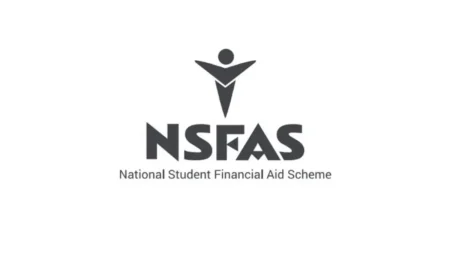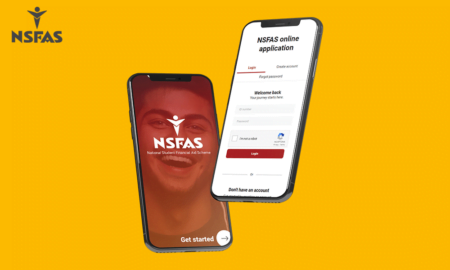The National Student Financial Aid Scheme (NSFAS) provides a lifeline for many students in South Africa, particularly those from low-income households, by covering tuition, accommodation, and other essential expenses for tertiary education. While NSFAS offers invaluable support, it’s essential for applicants to submit error-free applications to improve their chances of approval. Many students make mistakes during the application process, which can lead to delays or even rejections.
To help you navigate the process successfully, this article will discuss five common NSFAS application mistakes and how you can avoid them.
Why Getting Your NSFAS Application Right Matters
Securing financial aid through NSFAS can make a significant difference in a student’s ability to access higher education. With the rising costs of university tuition, accommodation, textbooks, and daily expenses, many students rely on NSFAS funding to make their educational dreams a reality. However, the application process is competitive, and NSFAS follows a strict approval system. A single mistake in your application can result in delays or even disqualification, causing unnecessary stress and missed opportunities.
Submitting a flawless application not only speeds up the approval process but also ensures that you get the funding you need to focus on your studies. By avoiding common errors, you increase your chances of getting your application approved without complications, making your path to tertiary education smoother.
NSFAS Application Mistakes To Avoid
1. Incorrect or Incomplete Documentation
One of the most common mistakes applicants make is submitting incorrect or incomplete documentation. NSFAS requires several supporting documents to verify your application, including your ID, proof of household income, and academic records.
How to Avoid This Mistake:
- Read the NSFAS Application Requirements Carefully: Before starting your application, make sure you fully understand which documents are required. The NSFAS website provides a detailed list of what you need.
- Ensure Documents Are Certified: All required documents must be certified, which means they need to be verified by a commissioner of oaths, police officer, or post office representative. Certification ensures the documents are authentic and up-to-date.
- Double-check Before Submitting: Go over your application checklist and confirm that you have uploaded all necessary documents. NSFAS gives applicants time to upload missing documents, but delays can hurt your chances of receiving funds on time.
Related: NSFAS 2025 Applications: Get Your Supporting Documents Ready Now!
2. Entering Incorrect Personal Information
Another common mistake is entering incorrect personal details, such as your name, surname, ID number, or contact details. Since the information you provide is cross-checked with government databases like Home Affairs, even a small error could cause major issues.
How to Avoid This Mistake:
- Double-check Your ID and Details: Make sure the personal information you provide in your application matches what is on your ID exactly. This includes spelling your name correctly and providing the right ID number.
- Use a Permanent Contact Number and Email: Make sure your contact information is current and reliable. NSFAS will send you updates via email and SMS, so if your details are outdated, you might miss important information.
- Don’t Rush: Rushing through the application is one of the main reasons applicants make mistakes. Take your time to ensure all the information you provide is correct.
3. Not Applying on Time
Every year, NSFAS opens applications for a limited period. Many students miss the deadline, thinking they have more time than they do. NSFAS is strict about deadlines, and once the application window closes, late applications are not accepted.
How to Avoid This Mistake:
- Keep Track of Application Dates: NSFAS usually opens applications between September and November. Keep an eye on the official NSFAS website, social media, and your educational institution’s communication for the announcement of the exact dates.
- Submit Early: Don’t wait until the last minute to apply. Submitting your application early gives you time to correct any potential errors or upload missing documents.
- Set Reminders: Use your phone, calendar, or even a notebook to set reminders for the opening and closing of applications. This will ensure you’re prepared well in advance.
4. Incorrect Income Declaration
Since NSFAS is intended for students from financially disadvantaged backgrounds, your household income plays a significant role in determining your eligibility. Some applicants make the mistake of under- or over-declaring their household income, leading to application rejections or misjudgments about their financial need.
How to Avoid This Mistake:
- Be Honest About Your Income: Ensure that you declare the correct household income, including all sources of income such as wages, grants, pensions, or informal earnings. Overstating or understating your income could result in your application being rejected.
- Gather All Necessary Proof: You will need to submit proof of your household income, which could include salary slips or bank statements from both parents or guardians. Make sure these documents are accurate and certified.
- Update Your Application if Circumstances Change: If your household income changes after you’ve submitted your application (e.g., due to job loss), you should notify NSFAS immediately and provide updated documentation.
5. Failing to Meet the Academic Requirements
Many applicants overlook the academic eligibility criteria when applying. NSFAS requires you to meet certain academic performance standards to qualify for financial aid. If you don’t meet these requirements, your application will be rejected.
How to Avoid This Mistake:
- Understand the Academic Requirements: To qualify for NSFAS, you must either be a current student or applying for your first tertiary qualification. You should have passed Grade 12 or be currently enrolled in an undergraduate degree. Additionally, you need to maintain a certain level of academic performance once you start receiving funding.
- Keep Your Grades Up: If you’re already in university, be mindful of your academic performance. NSFAS regularly reviews your progress, and continued funding depends on your ability to maintain acceptable grades.
- Seek Academic Support: If you’re struggling with your studies, make use of tutoring services, academic workshops, and study groups available at your institution. These resources can help you keep your grades up and stay eligible for NSFAS funding.
Read More: Top Reasons Why NSFAS Funding Applications Are Rejected and Tips to Avoid Them
Applying for NSFAS is a crucial step toward achieving your educational dreams, especially if you come from a low-income household. However, avoiding common mistakes can make the difference between approval and rejection.
By paying attention to detail, keeping track of deadlines, and ensuring you meet both financial and academic requirements, you can increase your chances of a successful application.










